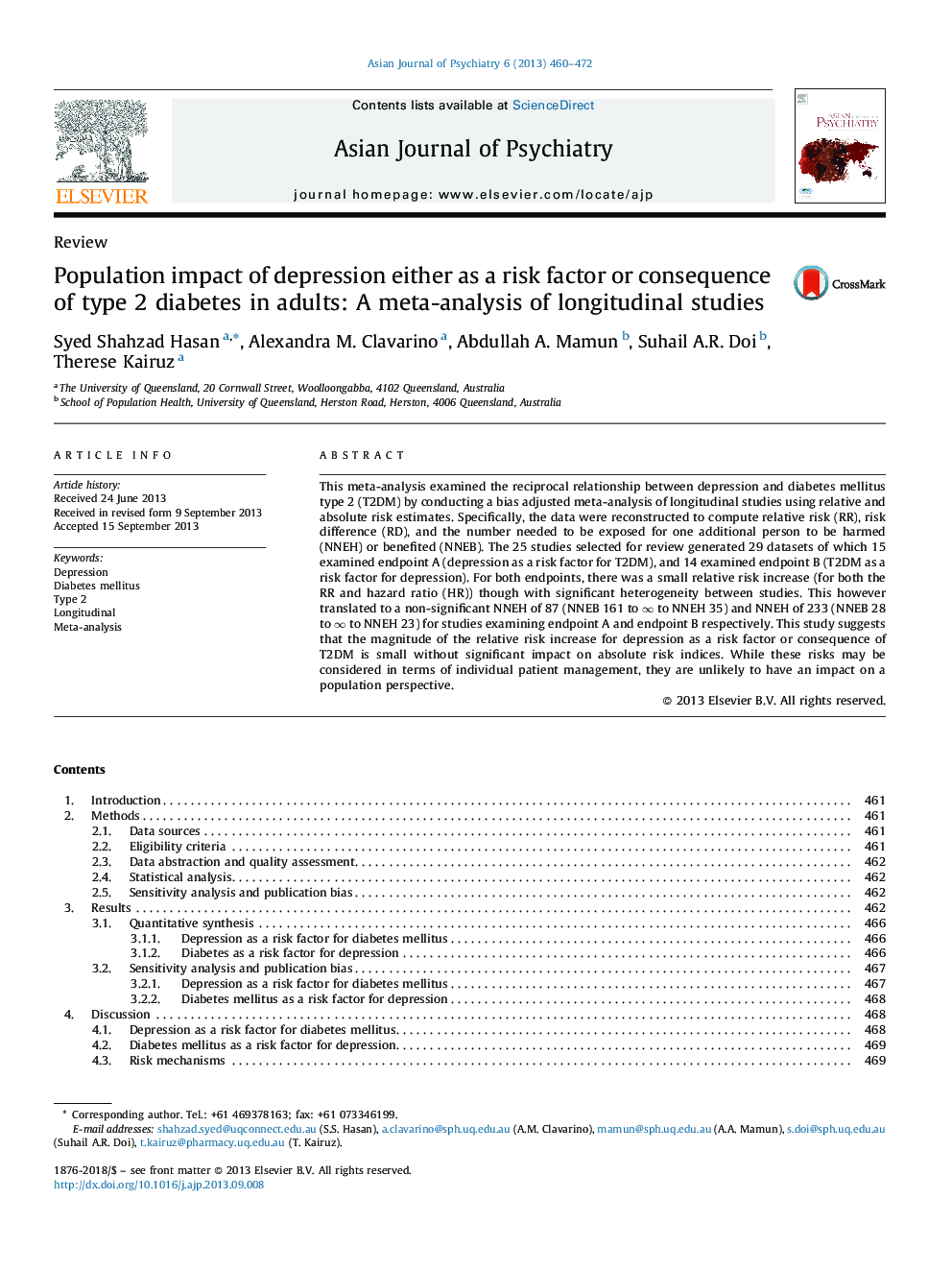| Article ID | Journal | Published Year | Pages | File Type |
|---|---|---|---|---|
| 6788218 | Asian Journal of Psychiatry | 2013 | 13 Pages |
Abstract
This meta-analysis examined the reciprocal relationship between depression and diabetes mellitus type 2 (T2DM) by conducting a bias adjusted meta-analysis of longitudinal studies using relative and absolute risk estimates. Specifically, the data were reconstructed to compute relative risk (RR), risk difference (RD), and the number needed to be exposed for one additional person to be harmed (NNEH) or benefited (NNEB). The 25 studies selected for review generated 29 datasets of which 15 examined endpoint A (depression as a risk factor for T2DM), and 14 examined endpoint B (T2DM as a risk factor for depression). For both endpoints, there was a small relative risk increase (for both the RR and hazard ratio (HR)) though with significant heterogeneity between studies. This however translated to a non-significant NNEH of 87 (NNEB 161 to â to NNEH 35) and NNEH of 233 (NNEB 28 to â to NNEH 23) for studies examining endpoint A and endpoint B respectively. This study suggests that the magnitude of the relative risk increase for depression as a risk factor or consequence of T2DM is small without significant impact on absolute risk indices. While these risks may be considered in terms of individual patient management, they are unlikely to have an impact on a population perspective.
Related Topics
Life Sciences
Neuroscience
Neuroscience (General)
Authors
Syed Shahzad Hasan, Alexandra M. Clavarino, Abdullah A. Mamun, Suhail A.R. Doi, Therese Kairuz,
